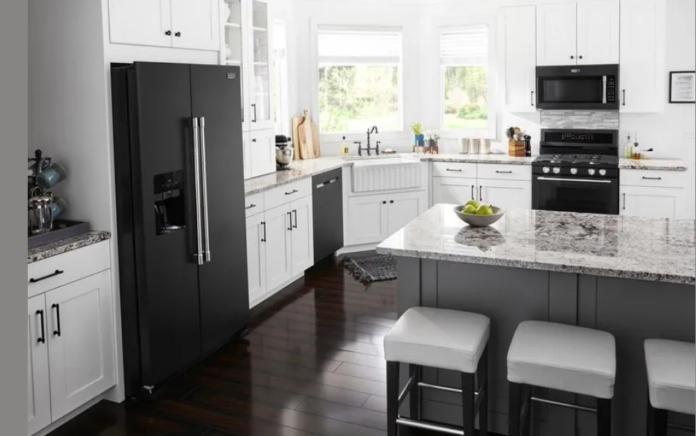
We’ve all been there. You’re browsing through a home store, and you see the perfect kitchen item that you just have to have. Maybe it’s a shiny new pot or pan, or an appliance that can do everything but cook your dinner for you. Before you know it, you’re loading it into your shopping cart and heading to the checkout line.
But what happens when you get that new kitchen toy home and start using it? Sometimes, things just don’t work out the way we expect them to. Here are four products that might be great in theory, but definitely shouldn’t make their way into your actual kitchen.
1. Refrigerators With Water And Ice Dispensers On The Door
Refrigerators with water and ice dispensers on the door may seem like a convenient way to get fresh, filtered water right at your fingertips. However, these types of refrigerators often contain lead in their internal plumbing or fittings, and many people are not aware of this risk. In fact, some models do not even warn users that their water may be contaminated.
Several brands of refrigerators have been found to have elevated levels of lead in their water dispensers, and the Consumer Protection Agency has issued a warning to avoid these refrigerator brands.
You should always look for model zeroes that have been certified by the NSF for safe drinking water quality, as this indicates that the manufacturer has taken measures to ensure that the water coming out of your fridge is safe to drink.
Moreover, when selecting replacement parts for your fridge’s filters or hoses, it is helpful to opt for materials made from nontoxic plastic rather than metal as these are less likely to leach lead into the water supply.
2. Scratched Non-Stick Pans
In today’s society, we are surrounded by all kinds of different products that make our lives easier. There is seemingly no limit to the technology available for us to use in our kitchens and homes, from the latest appliances and gadgets to highly specialized cookware.
Among the most popular of these items is the non-stick pan, which can help make preparing meals a breeze. However, before you rush out and stock your kitchen with all the latest non-stick cookware, you should know that there are some significant dangers associated with using these pans.
The surface of these pans is coated with special materials that contain toxins and other harmful chemicals that can cause serious health issues if they are exposed to high temperatures or scratched.
Therefore, it is crucial that you avoid having scratched non-stick pans in your kitchen at all costs, as this could lead to major problems down the line. After all, your health is much more valuable than ease in cooking! So be sure to take care when handling your non-stick pans and stay safe in your kitchen.
3. BPA Plastic Containers
BPA, or bisphenol A, is a chemical used in the production of many hard plastics. It can be found in everything from water bottles and food containers to the lining of canned goods. While BPA is considered safe at low levels of exposure, recent studies have linked it to a variety of health problems, including cancer and reproductive issues.
For one thing, BPA is a known endocrine disruptor, meaning it can interfere with the production of hormones in the body. This can lead to a variety of health problems, including reproductive issues, growth problems, and even cancer.
Additionally, BPA has been linked to obesity and diabetes, as well as heart disease and other cardiovascular problems. Finally, recent studies have shown that BPA can leach out of plastic containers and into food or beverages, which means that it could end up in your system even if you don’t directly consume it.
Because of the potential risks associated with BPA, it is important to take steps to avoid it. When purchasing food or drink containers, look for those made from glass or stainless steel. Avoid plastic containers that are marked with a 3 or 7 inside the recycling symbol; these are more likely to contain BPA.
4. Rusty Bakeware
Having Rusty Bakeware in your kitchen is a major no-no. This is because rusty bakeware can cause all sorts of health problems, such as food poisoning and respiratory problems. Aside from that, rusty bakeware can also decrease the quality of your food by imparting an unpleasant metallic taste or odor.
Furthermore, old and worn-out bakeware may have cracks or defects that could lead to hot foods and oils spilling all over your kitchen. In short, keeping rusty bakeware in your kitchen will put you and your family at risk for a range of different health issues and potentially cause serious damage to your kitchen appliances.
So the next time you are cleaning out your cupboards, be sure to throw away any old or rusty bakeware you find!
So, what kitchen gadgets should you avoid? Most of them! Steer clear of the products we mentioned and you’ll be safe. Also, remember that it’s not just about avoiding these specific items; it’s important to be mindful of the types of kitchen tools you’re using in general.
